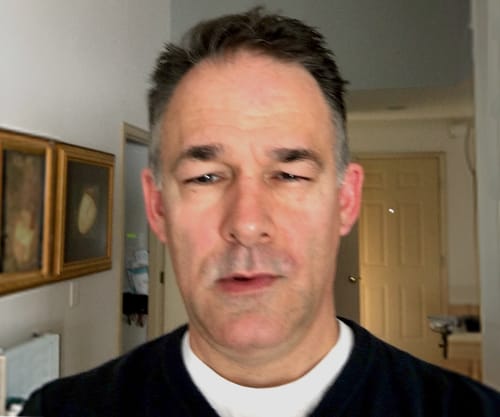Before Diagnosis
Upon reflection, I had hypertension in my early twenties. As I progressed into my thirties it became more difficult to control. I was placed on two medications including a diuretic, Hydrochlorothiazide (HCTZ). Time passed and the dosages were increased to control my blood pressure (BP). At the same time my potassium started to plummet. On April 5, 2006, and I remember that date well, my potassium went so low I thought I was having a heart attack. I could not move my body; especially my neck. I went to the Emergency Room where I was told that my potassium was only 2.6. They gave me some potassium to bring my levels up. It turned out the HCTZ was lowering my potassium. However, my doctor couldn’t understand why I was still having such low potassium issues after a potassium tablet was prescribed. I was also switched to a potassium sparing diuretic. Unfortunately, that still did not work, and it dropped very low again and I landed back in the Emergency Room on June 6, 2006. At this point, not only was I dealing with potassium wasting but I was also feeling anxious and did not feel well in general. I was also extremely tired.
In 2009, my blood pressure, heart rate and potassium levels were all very poor (160/120, 120 bpm, and 2.9). I did not know what was going on and had no energy. A good friend joked that the problem was caused by all the bananas I was eating to keep my potassium up. Feeling frustrated, afraid, and knowing something was wrong, I went to see the Urgent Care for Staff Department at The Ohio State University. A doctor there consulted with my primary care doctor and advised that they had to figure out what was going on with my blood pressure and potassium levels. Adjustments had been made after consulting with the staff pharmacist over several weeks, but results were still abnormal from their perspective.
Diagnosis
In late Autumn 2009 I was referred to a nephrologist. Before testing, I had to be switched to different blood pressure medications so that they would not interfere with testing. It was a bit of a challenge with the 4-Day Sodium Suppression Test (SST) as I was low on potassium; so, my potassium had to be checked twice daily and my nephrologist instructed me on how much potassium to ingest each day as the test progressed. After that test was completed, I did an Aldosterone/Renin Ratio (ARR) test. Both tests together demonstrated positive results for PA. Many additional tests were later run (including 24-Hour Urine Catch, CT Abdominal Scan, and Adrenal Vein Sampling (AVS)) to provide additional data. Unfortunately, due to the narrowing of the left kidney vein, the AVS done at both The Ohio State Wexner Medical Center and the Cleveland Clinic was not successful as they could not reach the left adrenal gland to sample. However, a CT Abdominal Scan revealed adenomas on both adrenal glands which meant that surgery was not an option for me as definitive tests could not determine which adenoma was producing the aldosterone due to AVS failures. Testing took several months and concluded in 2010. So, my treatment depends on medication.
Treatment
I have since responded favorably to Eplerenone (50mg 2x daily) and Doxazosin (1mg daily) taken in conjunction with potassium and nutrient supplements. However, there are still times when my blood pressure may surge under stress. I practice relaxation and mindfulness which help. I also try to avoid stress as much as possible. In general, I feel better, but I wonder how the high level of aldosterone is affecting my body as it is now above 60ng/dL. I am also concerned about the long-term use of Eplerenone, which is a corticosteroid, and any long-term side effects that it may have.
Since Treatment
Since I was diagnosed in 2009, I have had a lot of time to learn about which nutrients the adrenal glands need to function. I have an excellent team of doctors including a nephrologist, an endocrinologist, primary care, and naturopathic doctors. They have helped me plot a course so that I can navigate this disease and make better life choices to improve my health. As the body is under stress because of this disease, I want to make myself stronger by exercising, meditating, avoiding caffeine, and watching my sodium intake and sugar consumption. I have also eliminated alcohol.
My nephrologist suggested I take more Magnesium which has allowed my body to better retain Potassium. I use a fully absorbable liquid Potassium supplement that can also be used topically. Furthermore, I limit my daily sodium intake, supplement my diet with Vitamin C and Vitamin D as it can affect aldosterone production, and help balance the aldosterone/renin levels. The fully absorbable forms of Magnesium and Potassium that I take also offset any negative and counterproductive gastrointestinal effects that prescription Potassium (and Magnesium) can cause. Exercise is also very important to counteract daily stresses which have negative effects on this disease.
The good news is that my blood pressure readings are now typically 120/80 or less and my potassium levels are steady. I no longer have panic attacks or experience extreme muscle weakness. It is a bit of work but well worth the benefit of taking the time to understand how the body works, and which nutrients it needs to function at its best to keep the body strong.
I’m glad that this website exists so we can all learn more. Keep up the determination to endure this rather difficult journey as help is out there, and strides are being made in fighting this disease.


